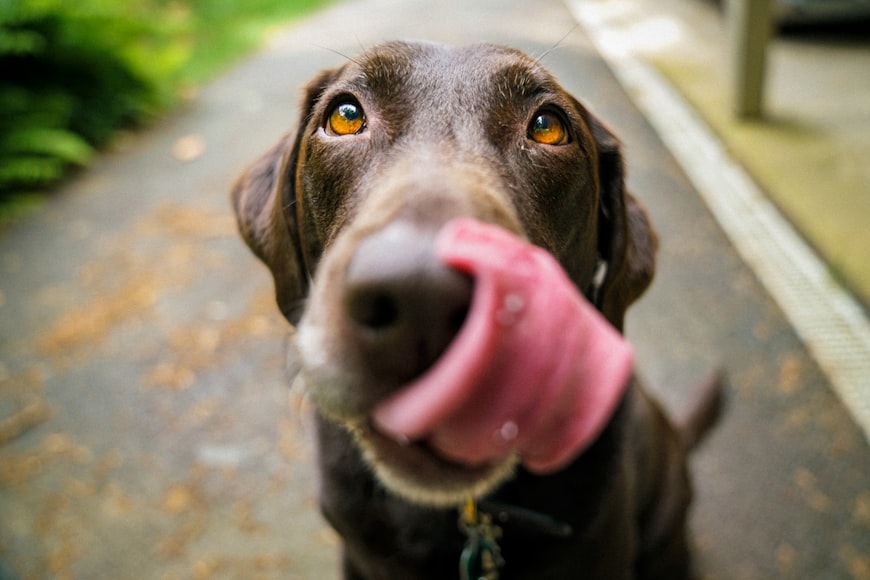How to Cure Dog Diarrhea Outline

Diarrhea is a common problem in dogs, and it can be caused by a variety of factors, including dietary changes, stress, infections, and underlying medical conditions. While most cases of diarrhea are not serious and will resolve on their own within a few days, it is important to seek veterinary attention if your dog’s diarrhea is severe or persistent.
Symptoms of Dog Diarrhea
The symptoms of dog diarrhea can vary depending on the underlying cause, but some common signs include:
- Loose, watery stools
- Frequent bowel movements
- Urgency to defecate
- Straining to defecate
- Abdominal pain
- Loss of appetite
- Lethargy
Causes of Dog Diarrhea
There are many potential causes of dog diarrhea, including:
- Dietary changes
- Stress
- Infections (bacterial, viral, or parasitic)
- Underlying medical conditions (pancreatitis, inflammatory bowel disease, etc.)
- Medications
- Toxins
Treatment for Dog Diarrhea
The treatment for dog diarrhea will depend on the underlying cause. In most cases, home treatment is sufficient. However, if your dog’s diarrhea is severe or persistent, it is important to seek veterinary attention.
Home Treatment for Dog Diarrhea
If your dog’s diarrhea is mild and not accompanied by other symptoms, you can try treating it at home with the following steps:
- Fast your dog for 12-24 hours. This will give their digestive system a chance to rest.
- Offer your dog small amounts of water frequently. This will help to prevent dehydration.
- Feed your dog a bland diet. This could include boiled chicken and rice, or a prescription diet from your veterinarian.
- Add probiotics to your dog’s food. Probiotics are live bacteria that can help to restore the balance of good bacteria in your dog’s digestive system.
- Give your dog anti-diarrheal medication. Anti-diarrheal medication can help to slow down the passage of stool through the digestive tract.
When to Seek Veterinary Attention
It is important to seek veterinary attention if your dog’s diarrhea is severe or persistent, or if it is accompanied by other symptoms such as:
- Vomiting
- Fever
- Lethargy
- Blood or mucus in the stool
- Abdominal pain
- Loss of appetite
These symptoms could indicate a more serious underlying medical condition that requires veterinary treatment.
Prevention of Dog Diarrhea
There are a few things you can do to help prevent dog diarrhea, including:
- Feed your dog a healthy diet.
- Avoid sudden changes in your dog’s diet.
- Make sure your dog has access to clean water at all times.
- Keep your dog away from potential toxins.
- Practice good hygiene by washing your hands before and after handling your dog, and cleaning up after them promptly.
Diarrhea is a common problem in dogs, but it can usually be treated at home with simple measures. However, it is important to seek veterinary attention if your dog’s diarrhea is severe or persistent, or if it is accompanied by other symptoms.
Determine Cause of Diarrhea:

Diarrhea, characterized by loose or watery stools, is a common ailment in dogs that can often resolve on its own within a few days. However, persistent or severe diarrhea can indicate an underlying health issue that requires medical attention. Understanding the causes of diarrhea is crucial for determining the appropriate treatment approach.
Determining the Cause of Diarrhea:
-
Dietary Changes: Abrupt changes in diet, including introducing new foods or switching brands, can trigger digestive upset leading to diarrhea.
-
Stress: Emotional triggers such as separation anxiety, travel, or changes in routine can cause stress-induced diarrhea in dogs.
-
Infections: Bacterial, viral, or parasitic infections can lead to diarrhea as the body’s way of flushing out harmful organisms.
-
Underlying Medical Conditions: Certain diseases, such as inflammatory bowel disease (IBD), pancreatitis, or cancer, can cause chronic or recurrent diarrhea.
-
Medications: Some medications, including antibiotics and anti-inflammatory drugs, can have side effects that include diarrhea.
Home Remedies for Mild Diarrhea:
For mild cases of diarrhea that do not persist for more than a day or two, home remedies may provide relief:
-
Fasting: Restricting your dog’s food intake for 12-24 hours can help the digestive system rest and recover.
-
Bland Diet: Offer a bland diet consisting of boiled chicken or white fish with plain rice. This helps replenish lost fluids and electrolytes.
-
Probiotics: Probiotics, which are healthy bacteria, can help restore balance to the digestive system.
-
Pumpkin Puree: Canned pumpkin puree contains soluble fiber that can help bulk up stools and reduce diarrhea.
When to Seek Veterinary Care:
If diarrhea persists for more than 48 hours, becomes bloody or foul-smelling, or is accompanied by other symptoms such as vomiting, abdominal pain, or lethargy, it is essential to seek veterinary care.
Veterinary Treatment for Diarrhea:
-
Diagnosis: The veterinarian will perform a physical examination, review the dog’s history, and may order diagnostic tests to determine the underlying cause of diarrhea.
-
Treatment: Depending on the diagnosis, treatment may involve antibiotics to treat infections, anti-inflammatory medications to reduce inflammation, or dietary modifications for underlying medical conditions.
-
Supportive Care: Fluids and electrolytes may be administered intravenously to prevent dehydration and replenish lost nutrients.
Preventing Diarrhea:
-
Gradual Diet Changes: Introduce new foods or switch brands gradually over several days to minimize digestive upset.
-
Reduce Stress: Provide a calm and stress-free environment for your dog.
-
Regular Veterinary Check-ups: Routine veterinary check-ups can help identify and address underlying health issues that may contribute to diarrhea.
-
Proper Vaccination: Vaccinations help protect against viral and bacterial infections that can cause diarrhea.
-
Hygiene: Good hygiene, including regular handwashing and cleaning pet areas, can reduce the risk of infectious diarrhea.
By understanding the causes of diarrhea and following appropriate home remedies or veterinary treatment, you can effectively cure your dog’s diarrhea and ensure their overall health and well-being.
Fast for 12-24 Hours:

Diarrhea, characterized by frequent, loose stools, is a common ailment in dogs. While it can be distressing for both the dog and the owner, diarrhea can usually be resolved with timely intervention. One of the key steps in treating diarrhea is fasting.
Understanding the Role of Fasting
When a dog experiences diarrhea, the digestive tract becomes inflamed and irritated. Fasting helps to rest the digestive tract, reduce inflammation, and allow the gut to recover. By withholding food for a period of 12-24 hours, you are giving the digestive system a chance to heal and rebalance.
How to Fast Your Dog
To fast your dog, simply withhold all food for the specified period of time. Water should be available at all times to prevent dehydration. During the fast, your dog may be lethargic or have decreased appetite, which is normal.
What to Expect During the Fast
Within the first few hours of fasting, the frequency and urgency of diarrhea may increase. This is because the digestive tract is trying to expel any remaining food or toxins that may be causing the upset. As the fast continues, the stools should gradually become less frequent and more solid.
When to Seek Veterinary Care
In most cases, fasting for 12-24 hours is sufficient to resolve diarrhea. However, if the diarrhea persists for more than a day, or if your dog shows any of the following symptoms, it is important to seek veterinary care immediately:
- Vomiting
- Blood or mucus in the stool
- Abdominal pain
- Fever
- Lethargy
Other Tips for Treating Diarrhea
In addition to fasting, there are several other measures you can take to help your dog recover from diarrhea:
- Provide bland food: After the fast, gradually reintroduce bland food, such as boiled chicken and rice, or a veterinarian-recommended bland diet.
- Hydrate your dog: Encourage your dog to drink plenty of water to prevent dehydration.
- Use probiotics: Probiotics can help to restore the balance of good bacteria in the gut.
- Administer antidiarrheal medication: If necessary, your veterinarian may prescribe antidiarrheal medication to control the symptoms.
Causes of Diarrhea in Dogs
Diarrhea can be caused by a variety of factors, including:
- Dietary indiscretion (eating something they shouldn’t)
- Food allergies or sensitivities
- Bacterial or viral infections
- Parasites
- Inflammatory bowel disease
- Underlying medical conditions
If you are unsure of the cause of your dog’s diarrhea, it is important to consult with a veterinarian for proper diagnosis and treatment.
Conclusion
Fasting for 12-24 hours can be an effective way to resolve diarrhea in dogs. By resting the digestive tract, reducing inflammation, and allowing the gut to heal, fasting can help your dog return to normal bowel function. However, if diarrhea persists or is accompanied by other concerning symptoms, it is important to seek veterinary care promptly.
Reintroduce Food Gradually:

Diarrhea, the frequent passing of loose or watery stools, is a common ailment in dogs that can cause discomfort, dehydration, and other health concerns. While mild cases may resolve on their own, more severe or persistent diarrhea requires veterinary attention. This comprehensive guide will provide you with a step-by-step approach to curing dog diarrhea, including preventive measures, dietary interventions, and medical treatments.
Causes of Dog Diarrhea
Understanding the underlying cause of diarrhea is crucial for effective treatment. Common causes include:
- Dietary indiscretion (eating something they shouldn’t have)
- Stress or anxiety
- Infections (bacterial, viral, or parasitic)
- Inflammatory bowel disease (IBD)
- Food allergies
- Certain medications
When to Seek Veterinary Care
Seek veterinary care immediately if your dog exhibits any of the following symptoms:
- Diarrhea that lasts for more than 24 hours
- Bloody or mucousy stools
- Vomiting
- Lethargy
- Abdominal pain
- Dehydration
Dietary Management
-
Fasting: For severe diarrhea, withhold food for 12-24 hours to allow the gastrointestinal tract to rest.
-
Bland Diet: Once fasting is complete, gradually reintroduce food by offering small portions of bland, easily digestible foods. Boiled chicken, white rice, cottage cheese, and sweet potatoes are good options.
-
Probiotics: Probiotics are beneficial bacteria that can help restore gut health. They can be found in supplements or yogurt.
-
Avoid Certain Foods: Foods that are high in fat, fiber, or protein can worsen diarrhea. Avoid dairy products, processed foods, and table scraps.
Medical Treatments
-
Antibiotics: Antibiotics are used to treat bacterial infections.
-
Antiparasitics: Antiparasitic medications are used to treat parasitic infections.
-
Anti-inflammatories: Anti-inflammatory drugs can help reduce inflammation in the gastrointestinal tract.
-
Antidiarrheals: Antidiarrheal medications can help slow down the frequency and severity of diarrhea.
Prevention
- Feed your dog a healthy, balanced diet.
- Avoid feeding table scraps or other foods that can upset your dog’s stomach.
- Keep your dog away from garbage or other sources of spoiled food.
- Vaccinate your dog against common causes of diarrhea, such as parvovirus and distemper.
- Practice good hygiene to prevent bacterial infections.
Additional Tips
- Keep your dog hydrated by offering plenty of fresh water.
- Encourage your dog to rest and avoid strenuous activity.
- Monitor your dog’s stools and track the frequency and severity of diarrhea.
- Contact your veterinarian if symptoms worsen or do not improve after a few days.
Conclusion
Curing dog diarrhea requires a multi-pronged approach that includes addressing the underlying cause, managing the symptoms, and implementing preventative measures. By following the steps outlined in this guide, you can help your furry friend recover from diarrhea and maintain a healthy digestive system. Remember, if symptoms persist or worsen, it is essential to seek veterinary care promptly.
Use Probiotics:
Diarrhea is a common health concern in dogs, often causing distress and discomfort. While some cases may resolve on their own, others require prompt veterinary attention. Understanding the underlying causes and implementing appropriate treatment measures is crucial for restoring your dog’s digestive health.
Causes of Diarrhea in Dogs
- Dietary indiscretion (e.g., eating garbage or spoiled food)
- Parasites (e.g., hookworms, roundworms, whipworms)
- Bacterial infections (e.g., Salmonella, E. coli)
- Viral infections (e.g., parvovirus, coronavirus)
- Inflammatory bowel disease (IBD)
- Food allergies or sensitivities
Signs and Symptoms of Diarrhea
- Loose, watery stools
- Frequent bowel movements
- Straining to defecate
- Abdominal discomfort
- Loss of appetite
- Lethargy
Treatment Options for Diarrhea
The treatment for diarrhea in dogs varies depending on the underlying cause. In most cases, a combination of treatments may be necessary to address both the symptoms and the underlying condition.
1. Restricting the Diet
- Fasting your dog for 12-24 hours can help rest the digestive tract and reduce diarrhea.
- Once the fasting period is over, gradually introduce a bland diet such as boiled chicken and rice.
2. Antidiarrheal Medications
- Over-the-counter antidiarrheal medications may be effective in reducing diarrhea.
- Use them according to the manufacturer’s instructions and consult your veterinarian before giving them to puppies or dogs with underlying health conditions.
3. Antibiotics
- If the diarrhea is caused by a bacterial infection, antibiotics will be prescribed by your veterinarian.
- It is important to complete the entire course of antibiotics to ensure complete elimination of the infection.
4. Antiparasitics
- If the diarrhea is caused by parasites, antiparasitic medications will be prescribed by your veterinarian.
- Regular deworming is also essential for preventing future parasite infections.
5. Probiotics
- Probiotics are beneficial bacteria that help restore a healthy balance of gut microorganisms.
- Supplementing your dog with probiotics can promote a healthy digestive environment and reduce diarrhea.
6. Dietary Changes
- If the diarrhea is caused by a food allergy or sensitivity, it is important to identify and eliminate the offending food from your dog’s diet.
- Work with your veterinarian to determine the best diet for your dog’s individual needs.
7. Veterinary Attention
- If the diarrhea is severe, persistent, or accompanied by other symptoms such as vomiting, lethargy, or fever, seek veterinary attention immediately.
- These signs may indicate a more serious underlying condition that requires prompt medical intervention.
Preventing Diarrhea
- Feed your dog a high-quality diet and avoid table scraps or spoiled food.
- Keep your dog up to date on vaccinations and deworming.
- Practice good hygiene and wash your hands after handling your dog or their feces.
Conclusion
Diarrhea in dogs can be a frustrating and uncomfortable experience. By understanding the underlying causes, implementing appropriate treatment measures, and practicing preventive care, you can effectively cure your dog’s diarrhea and restore their digestive health. If the diarrhea is severe or persistent, always seek veterinary attention to rule out more serious conditions.
Antidiarrheal Medication:
Diarrhea, a common ailment in dogs, can be a distressing and uncomfortable experience for both the pet and the owner. However, understanding the causes, symptoms, and effective remedies can help mitigate this issue and ensure your furry friend’s well-being.
Causes of Diarrhea
Diarrhea can stem from various factors, including:
- Dietary indiscretion: Eating spoiled food, garbage, or other foreign objects
- Bacterial or viral infections: Salmonella, Clostridium, or parvovirus
- Parasitic infestations: Hookworms, roundworms, or giardia
- Allergic reactions: Certain foods, medications, or environmental allergens
- Pancreatitis: Inflammation of the pancreas
- Inflammatory bowel disease: Chronic inflammation of the digestive tract
- Stress or anxiety: Changes in routine or environment
Symptoms of Diarrhea
The telltale signs of diarrhea include:
- Loose, watery, or bloody stools
- Frequent or urgent bowel movements
- Straining or difficulty passing stools
- Abdominal pain or discomfort
- Dehydration: Dry gums, decreased skin elasticity, sunken eyes
- Vomiting
Treatment Strategies
The appropriate treatment for diarrhea depends on the underlying cause. Here are some effective measures to consider:
1. Home Remedies:
- Fasting: Withhold food for 12-24 hours to allow the digestive tract to rest.
- Bland diet: Feed small portions of easily digestible foods such as white rice, boiled chicken, or canned pumpkin.
- Electrolyte replacement: Offer oral electrolytes to prevent dehydration.
2. Veterinary Intervention:
- Diagnosis: Your veterinarian will perform a physical examination, review the dog’s history, and may order bloodwork or stool tests to determine the cause.
- Antiparasitic medication: If parasites are identified, appropriate antiparasitic medication will be prescribed.
- Antibiotics: Bacterial infections may require antibiotic treatment.
- Anti-inflammatory drugs: Inflammatory conditions may benefit from anti-inflammatory medications.
3. Antidiarrheal Medication:
In severe cases, your veterinarian may recommend over-the-counter or prescription antidiarrheals. These medications slow down intestinal motility, reducing the frequency and severity of stools.
4. Intravenous Fluid Therapy:
If the dog becomes dehydrated due to persistent diarrhea, intravenous fluid therapy may be necessary to restore electrolyte balance.
Prevention
While it’s not always possible to prevent diarrhea, proactive measures can reduce the risk:
- Feed your dog a balanced and digestible diet.
- Keep your dog hydrated with fresh water.
- Regularly deworm your dog to prevent parasitic infestations.
- Manage stress levels by providing a stable and predictable environment.
- Vaccinate your dog against parvovirus, a highly contagious viral infection that causes severe diarrhea.
When to Seek Veterinary Help
Seek immediate veterinary attention if:
- Your dog has bloody diarrhea.
- Diarrhea persists for more than 24 hours.
- Your dog shows signs of dehydration, such as dry gums or sunken eyes.
- Your dog is vomiting excessively.
- Your dog’s abdomen is painful or distended.
- Your dog has a fever or other systemic symptoms.
Conclusion
Diarrhea can be a troublesome issue for dogs, but with proper diagnosis and treatment, it can be managed effectively. By understanding the causes, symptoms, and treatment options, pet owners can provide their furry companions with the necessary care and support during this uncomfortable time. Remember, it’s always advisable to consult with your veterinarian for the best course of action. With proper management, dogs can overcome diarrhea and return to their healthy and energetic selves.
Consider Dietary Changes:
Diarrhea, a common digestive issue in dogs, can be both distressing for our furry friends and a source of concern for pet owners. Understanding the causes and implementing effective remedies can alleviate discomfort and restore your dog’s health.
Causes of Dog Diarrhea
- Dietary indiscretion: Ingestion of spoiled food, garbage, or foreign objects
- Food intolerances or allergies: Sensitivity to specific ingredients in the diet
- Gastrointestinal infections: Bacterial, viral, or parasitic infections
- Pancreatitis: Inflammation of the pancreas
- Inflammatory bowel disease: Chronic inflammation of the digestive tract
- Medications: Certain medications, such as antibiotics or steroids
Symptoms of Dog Diarrhea
- Loose, watery stools
- Increased frequency of bowel movements
- Straining to defecate
- Mucus or blood in stools
- Loss of appetite
- Lethargy
- Vomiting
Home Remedies for Dog Diarrhea
1. Restrict Diet:
- For 12-24 hours, withhold food to allow the digestive tract to rest.
- Offer small amounts of water to prevent dehydration.
2. Consider Dietary Changes:
- Evaluate your dog’s current diet and identify potential triggers.
- Consider switching to a bland diet, such as boiled chicken and rice, or a prescription diet recommended by a veterinarian.
- Gradually reintroduce regular food once symptoms subside.
3. Probiotics:
- Probiotics are beneficial bacteria that help restore balance to the digestive tract.
- Give your dog a probiotic supplement or offer fermented foods like yogurt.
4. Pumpkin:
- Canned pumpkin is a natural source of fiber, which can help firm stools.
- Add a spoonful to your dog’s diet.
5. Activated Charcoal:
- Activated charcoal absorbs toxins and can help stop diarrhea.
- Administer according to veterinarian’s instructions.
6. Electrolyte Solution:
- Diarrhea can lead to dehydration.
- Offer your dog an electrolyte solution to replenish lost fluids.
When to Seek Veterinary Attention
- If diarrhea persists for more than 24 hours
- If your dog shows signs of lethargy, vomiting, or loss of appetite
- If stools contain blood or mucus
- If your dog is a puppy or has an underlying medical condition
Veterinary Treatment
Depending on the underlying cause, your veterinarian may recommend:
- Antimicrobial medications for infections
- Anti-inflammatory drugs for pancreatitis
- Dietary supplements for inflammatory bowel disease
- Hospitalization for severe dehydration or other complications
Prevention:
- Feed your dog a balanced, high-quality diet.
- Avoid feeding table scraps or spoiled food.
- Keep your dog away from potential toxins.
- Ensure regular veterinary checkups and deworming.
By understanding the causes and implementing prompt and appropriate remedies, you can effectively cure dog diarrhea and ensure your furry companion’s well-being. Remember, if symptoms persist or your dog shows signs of distress, consult your veterinarian immediately.
Manage Stress:
Diarrhea, characterized by loose, watery stools, can be a distressing and uncomfortable problem for both dogs and their owners. While it’s often a temporary issue that resolves on its own, severe or persistent diarrhea can indicate an underlying health condition that requires veterinary attention. To help you effectively manage your dog’s diarrhea, this comprehensive guide will provide practical tips and treatment options.
Causes of Dog Diarrhea
The causes of dog diarrhea are varied and can range from minor to serious. Common causes include:
- Dietary changes
- Food allergies or sensitivities
- Parasites
- Bacterial or viral infections
- Stress
- Medications
Treating Dog Diarrhea
The first step in treating dog diarrhea is to identify the underlying cause. Your veterinarian will perform a thorough examination, including a physical exam, blood work, and stool analysis, to determine the best course of action. Treatment options may include:
1. Dietary Management:
- Feed your dog a bland diet low in fiber, such as boiled chicken and rice.
- Gradually reintroduce your dog’s regular food over a period of several days.
- Avoid feeding your dog table scraps or treats, as they can further irritate the digestive system.
2. Medication:
- Antidiarrheal medications can help slow down the movement of food through the digestive tract, reducing diarrhea.
- Antibiotics may be prescribed if a bacterial infection is present.
- Probiotics, beneficial bacteria that support gut health, can help restore the balance of the microbiome.
3. Home Care:
- Keep your dog well-hydrated by providing plenty of fresh water.
- Monitor your dog’s activity levels and avoid strenuous exercise, as it can worsen diarrhea.
- Clean up diarrhea accidents promptly to prevent further contamination.
Manage Stress:
Stress can trigger diarrhea in dogs. Address any sources of stress for your dog, such as anxiety or boredom. This may involve providing more exercise, mental stimulation, or a calm, stress-free environment.
When to Seek Veterinary Attention:
If your dog’s diarrhea is severe or persists for more than 24 hours, it’s crucial to seek veterinary attention promptly. Severe diarrhea can lead to dehydration, electrolyte imbalances, and other serious complications.
Signs that require immediate veterinary attention include:
- Bloody or black stools
- Vomiting
- Lethargy
- Loss of appetite
- Fever
Prevention of Dog Diarrhea
- Feed your dog a high-quality diet that meets their nutritional needs.
- Gradually introduce new foods to avoid digestive upset.
- Keep your dog up-to-date on vaccinations and parasite prevention.
- Manage stress by providing adequate exercise, mental stimulation, and a supportive environment.
Conclusion:
Managing dog diarrhea effectively requires a combination of identifying the underlying cause, implementing appropriate treatments, and providing supportive care. By following these guidelines, you can help your dog recover from diarrhea quickly and comfortably. Remember, if you have any concerns or your dog’s diarrhea persists or worsens, don’t hesitate to seek professional veterinary advice.
Monitor and Consult a Veterinarian:
Diarrhea is a common ailment that can affect dogs of all ages and breeds. While it can be a temporary inconvenience, severe or persistent diarrhea can lead to dehydration, electrolyte imbalances, and even more serious health problems. As a responsible pet parent, it’s crucial to understand the causes and effective treatments for this common canine issue.
Causes of Diarrhea in Dogs
The underlying cause of diarrhea can vary widely, including:
- Dietary changes
- Food allergies or intolerances
- Bacterial or viral infections
- Parasites
- Inflammatory bowel disease
- Stress or anxiety
- Medications or toxins
- Underlying medical conditions (e.g., liver or pancreas disease)
Monitoring and Consulting a Veterinarian
If your dog experiences diarrhea, it’s essential to monitor the situation closely. If the diarrhea persists for more than 48 hours, shows signs of blood or mucus, or if your dog exhibits other symptoms such as lethargy, vomiting, or abdominal pain, it’s crucial to seek veterinary attention promptly.
Home Remedies for Mild Diarrhea
For mild diarrhea, there are several home remedies that you can try:
- Withhold food for 12-24 hours: This gives your dog’s digestive system a chance to rest and recover.
- Offer plenty of water: Dehydration can worsen diarrhea, so ensure your dog has access to fresh water at all times.
- Feed a bland diet: Rice and boiled chicken or fish are easy to digest and can help firm up stools.
- Probiotics: These beneficial bacteria can support your dog’s digestive health and help restore balance to the gut microbiome.
- Pumpkin: Canned pumpkin is a good source of fiber, which can help bulk up stools and reduce diarrhea.
Medications for Diarrhea
If home remedies do not resolve the diarrhea within 24-48 hours, your veterinarian may prescribe medications, such as:
- Antibiotics: If the diarrhea is caused by a bacterial infection.
- Anti-parasitics: If the diarrhea is caused by parasites.
- Anti-diarrheals: These medications can help slow down bowel movements and reduce the frequency of diarrhea.
- Electrolyte supplements: These supplements can help replenish electrolytes lost through diarrhea and prevent dehydration.
Preventing Diarrhea
- Feed a healthy diet: A balanced diet that meets your dog’s nutritional needs can help reduce the risk of digestive upset.
- Avoid sudden dietary changes: Gradually introduce new foods to prevent digestive problems.
- Vaccinate your dog: Vaccinations can protect your dog from infections that can cause diarrhea.
- Deworm your dog regularly: Regular deworming can prevent parasite infestations.
- Manage stress: Stress can trigger digestive issues, so provide your dog with a safe and comfortable environment.
Conclusion
Diarrhea in dogs can be a concerning issue, but by understanding the causes, monitoring symptoms, and implementing appropriate treatments, you can effectively cure your furry friend. Remember to consult a veterinarian promptly for severe or persistent diarrhea to rule out any underlying medical conditions and receive proper guidance. By following these strategies, you can ensure your dog’s digestive health and well-being.



















